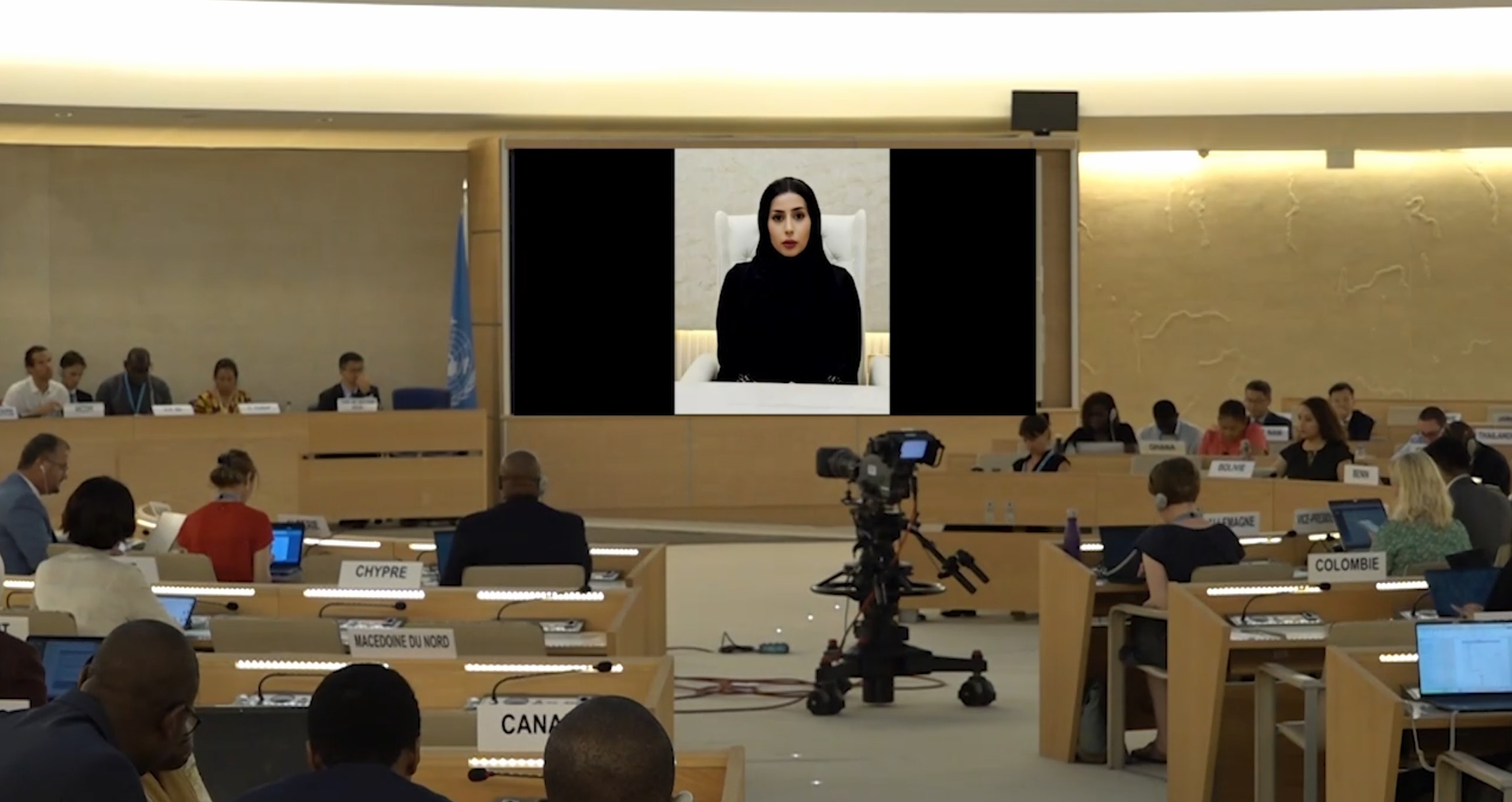24
Jul
2025
2025 | 59th session of the Human Rights | Human Rights Council | Oral statements
The Union Association for Human Rights Calls for the Regulation of Artificial Intelligence in the Judiciary and Commends the UAE’s Model in Digital Justice

About the Statement
Dr. Fatima Al-Kaabi, Chairperson of the Union Association for Human Rights, delivered an oral statement before the UN Human Rights Council during its 59th session under Item 3, dedicated to the independence of judges and lawyers, as part of the interactive dialogue with the Special Rapporteur. The statement focused on emerging challenges posed by the use of artificial intelligence (AI) in judicial systems, while commending the UAE’s model in the ethical and responsible application of advanced technologies.
Content of the Statement:
- Commending the efforts of the Special Rapporteur and the Council: The statement praised the efforts of the Human Rights Council and the Special Rapporteur to safeguard judicial independence, stressing the need for these efforts to align with international standards and ethical principles.
- Warning about AI challenges: The statement highlighted that the increasing use of AI in judicial systems, such as case analysis, crime prediction, and sentencing, could undermine the confidentiality of proceedings and the independence of judges and lawyers if not governed by strict legal frameworks.
- Commending the UAE’s experience: The statement showcased the UAE’s approach to regulating AI in the justice sector, including:
- Issuing the Charter for AI Development and Use.
- Adopting the AI Ethics Principles and Guidelines to ensure neutrality, responsibility, and privacy.
- Launching initiatives such as “Smart Courts” and “Smart Prosecution”.
- Using blockchain technology for evidence documentation.
- Training judges and lawyers on modern digital tools.
- Affirming the role of the human element: The statement emphasized that judges must remain at the center of justice processes and that technology should serve as a support tool rather than a substitute for judicial decision-making.
Importance of the Statement:
- Highlighting AI challenges in justice:> The statement addressed a sensitive issue concerning the potential threat of excessive automation to judicial independence, making it a significant contribution to global discussions on the future of digital justice.
- Calling for international legal frameworks: The statement urged the international community to establish clear standards for the use of AI in judicial systems to ensure fairness, transparency, and impartiality.
- Highlighting the UAE as a model: The statement presented the UAE’s advanced experience in balancing innovation with regulation while maintaining ethical and human rights safeguards, reinforcing its image as a hub for smart justice.
- Strengthening judicial independence in the digital age: The statement stressed that the independence of judges and lawyers must not be compromised by technological transformations and should instead be preserved through a balanced approach combining digitization and rights-based guarantees.

